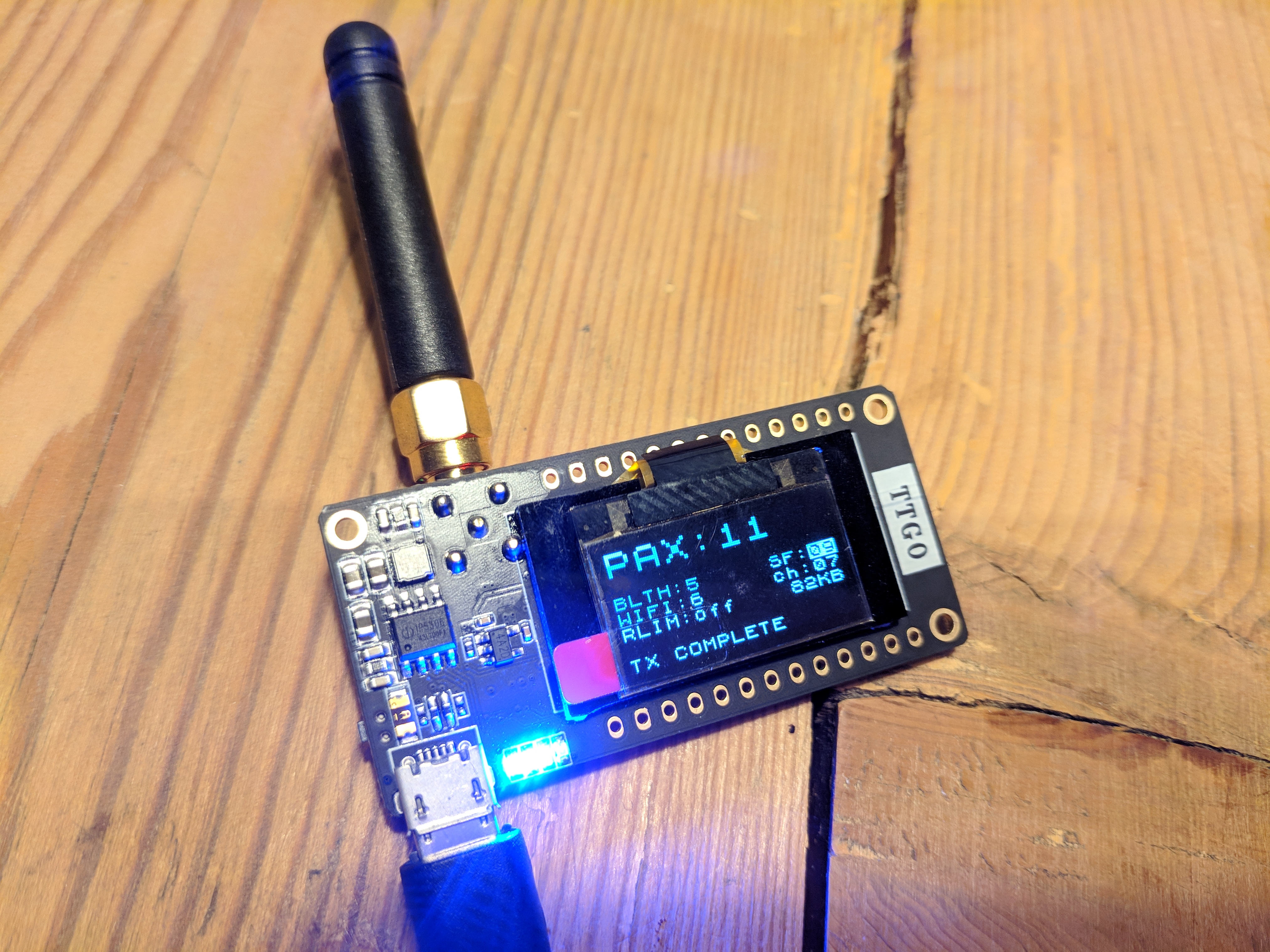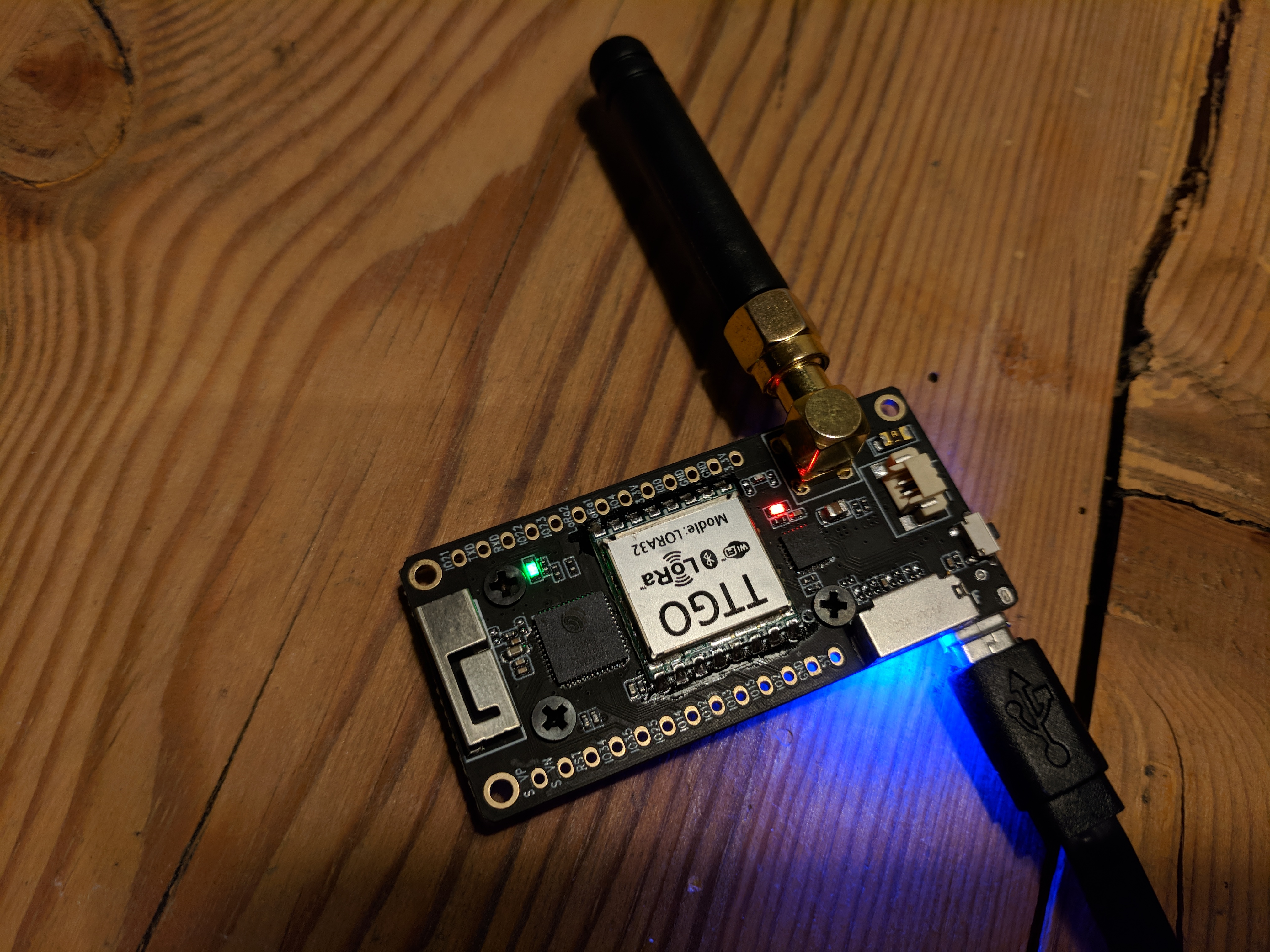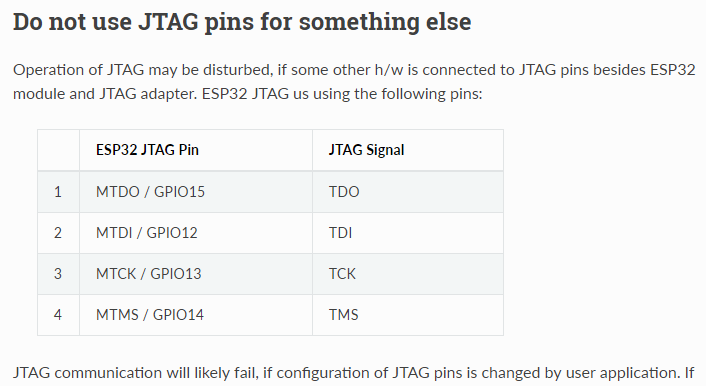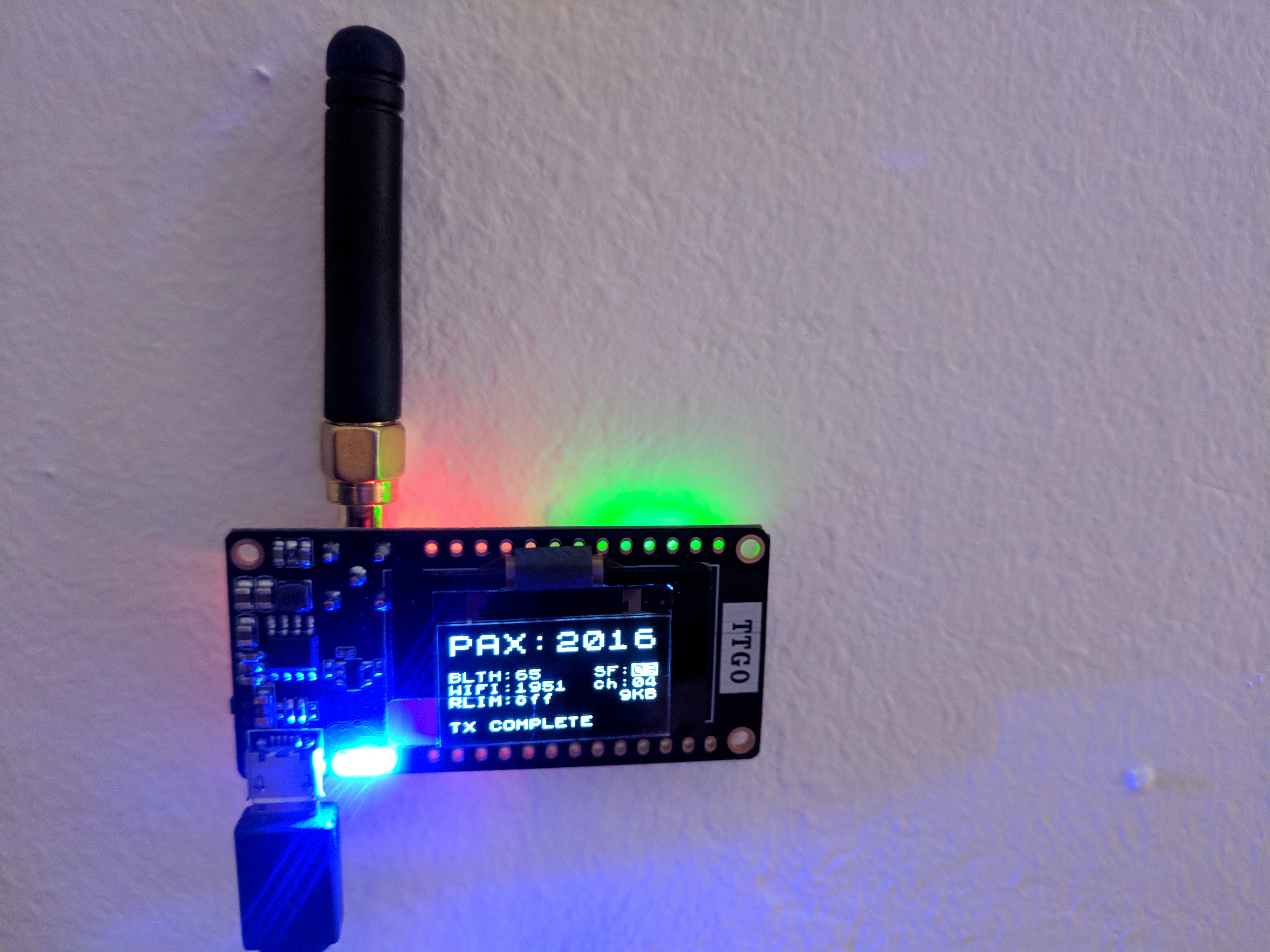Nice! This one without display (but can be connected when needed). Link?
US $36.95 … prices are getting crazy 
Important TTGO LoRa32 V2 Errata
-
Different from what was mentioned before: LoRa Reset is NOT connected to GPIO14.
LoRa Reset is NOT connected to ANY GPIO port but is hard-wired to the ESP32 Chip Enable (EN).
This means that for LMIC, GPIO14 must no longer be specified as the LoRa Reset pin.
(Diagram on Lilygo’s LoRa32 V2 github repository shows this incorrectly and also contains other errors.) -
The microSD card slot can be used as a regular microSD card reader/writer.
Which is great for storing measurements, location tracking data etc.
The SD card interface uses GPIO14 for SD_CLK but it is now clear that this does not conflict with the LoRa module. (It also does not conflict with pins for the embedded flash memory in the ESP32-Pico-D4.)
The LoRa Reset information is based on my own testing (after having received feedback from Lilygo that has shown to be only partially correct). I have not yet tested the SD card functionality.
I have updated the pinout diagram to v3.0, included here: TTGO LoRa32 V2.0 Pinout v3.0.pdf (2.3 MB)

(The opening topic has been updated with above information.)
And if you are using the Arduino ESP32 setup, you will find that the file.flush() function does not work on the SD. So you need to use file.close() instead.
Looking for answer, please have a look at: What is the function of the SX127x / RFM9x reset pin in LMIC?
Did anyone use the microSD card reader/writer on the TTGO LoRa32 V2 already?
Please share your experiences.
New arrival from Aliexpress and LiliGo: TTGO v2.1, running paxcounter code v1.3.51. Works out of the box, no more wiring necessary.


Received today as promised by GREAT customer service 1 brand new version 2.1 board of the TTGO Lora32, shipped with kind regards of www.ttgobbs.com It came in a nice plastic transparent case with battery cable and headers included, but also a small whip antenna which gave me VSWR 1.01 on my vector analyzer. Thanks LilyGo & TTGO !!
It’s great that there’s no more sliderswitch, the antenna connector is SMA and on battery power the reset acts also as on/off pushbutton…
Have to test that out and I’ll let you know all about the cardwriter !
Got the new TTGO LoRa32 but with “Fees to pay” Royal Mail of £12.14 (£4.14 VAT + handling fees)
Why anybody try to use a lorawan module (microchip, Rak or other with uC added) as a ESp8266? Modules have a PIC o STM uC integrated and they have most accessible pins to use it.
is that a question ? ![]()
Yes 
OK 
What exactly is the question?
The new TTGO LoRa32 V2.1 appears to have the battery connected to GPIO35 via a 2x 100k voltage divider so the actual battery level can now be monitored.
Anyone with a V2.1 who can test and confirm this?
(Still waiting for my board).
I think you are correct that JTAG debugging with the Heltec board is not an option because the JTAG pins have been used for other on-board hardware features.
From ESP-IDF Docs API Guides JTAG Debugging Tips and Quirks:

So apparently JTAG cannot be remapped to other pins.
I am interested in more information about / experience with JTAG debugging the ESP32.
Do you have experience with JTAG debugging any ESP32 boards?
I wrote some software to test it, it is included in paxcounter v1.3.71 in branch development of repo. But not tested on the board yet.
TTGO v2.1 running the paxcounter TTN software in an environment with dense footfall
I tried to setup code for reading the voltage on GPIO35 via ADC1 of ESP32.
But i was not successful yet, since i seem always to get the same constant value:
[I][rcommand.cpp:245] get_voltage(): Remote command: get battery voltage
[I][adcread.cpp:31] check_efuse(): eFuse Two Point: NOT supported
[I][adcread.cpp:36] check_efuse(): eFuse Vref: Supported
[I][adcread.cpp:47] print_char_val_type(): Characterized using eFuse Vref
[I][adcread.cpp:86] read_voltage(): Raw: 4095 Voltage: 1082mV )
)